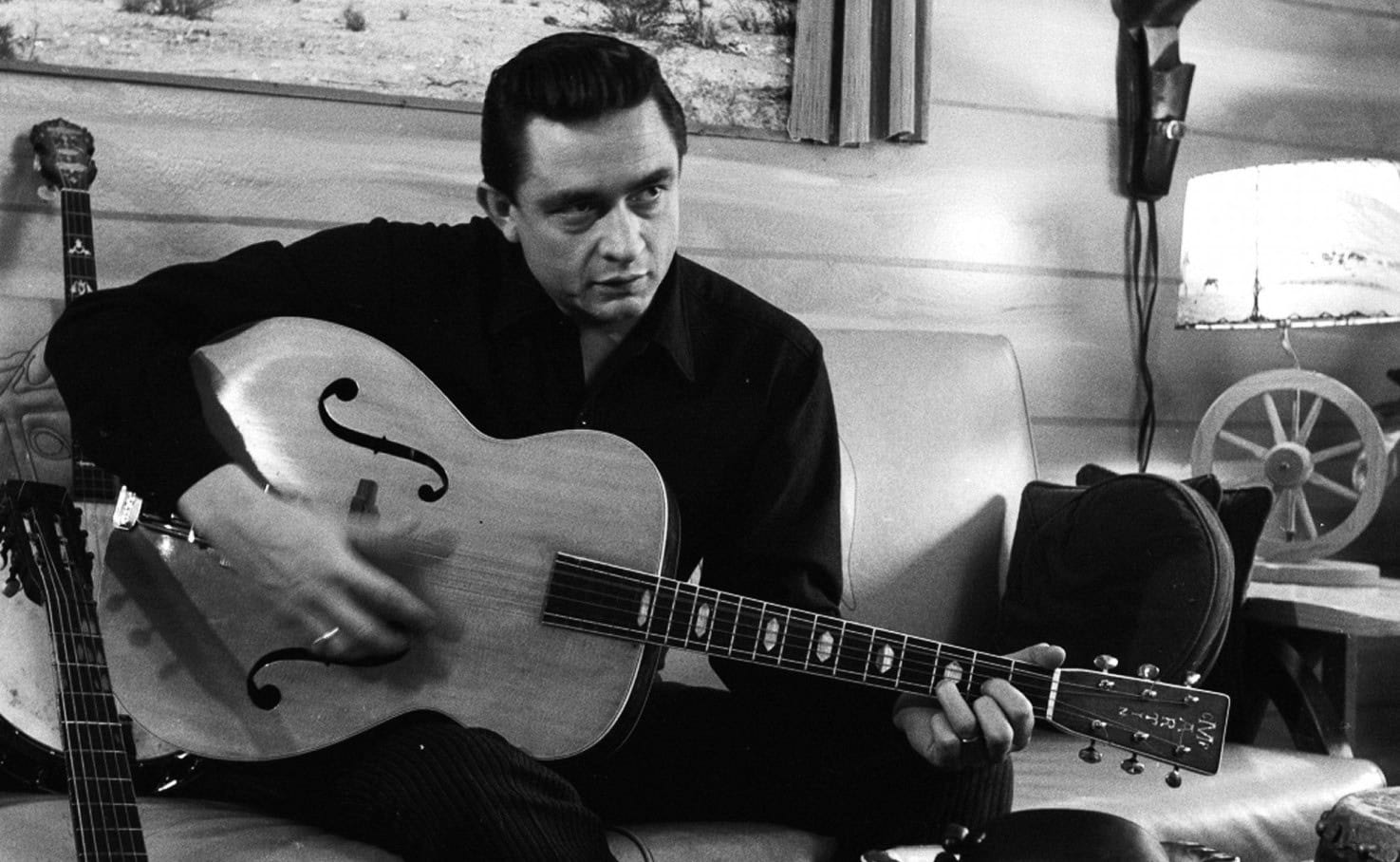
About the song
Johnny Cash’s “Folsom Prison Blues” is an iconic piece of American music that captures the raw emotion and gritty storytelling that became hallmarks of Cash’s career. Written in 1953, Cash first recorded and released the song as a single in 1955, later including it on his debut studio album “Johnny Cash with His Hot and Blue Guitar!” in 1957. This song stands as one of Cash’s signature tunes, blending elements of train songs and prison songs, two popular folk styles that Cash would revisit throughout his career.
The inspiration for “Folsom Prison Blues” struck Cash while he was stationed in West Germany with the United States Air Force. After watching the film “Inside the Walls of Folsom Prison” (1951), Cash began to weave a narrative that encapsulated the despair and confinement of prison life. He famously remarked on the line “But I shot a man in Reno, just to watch him die,” explaining that he was trying to conceive the most senseless reason for committing such a heinous act.
The song borrows heavily from Gordon Jenkins’ 1953 piece “Crescent City Blues.” While Jenkins was not initially credited, Cash later settled a lawsuit in the early 1970s, compensating Jenkins with approximately $75,000. Despite the legal complications, “Folsom Prison Blues” cemented its place in music history, recognized for its distinctive melody and poignant lyrics.
The original recording session took place at Sun Studio in Memphis, Tennessee, on July 30, 1955. Produced by Sam Phillips, the session featured Cash on vocals and guitar, Luther Perkins on guitar, and Marshall Grant on bass. Notably, Cash created a snare drum effect by placing a piece of paper under his guitar strings and strumming, a technique that added to the song’s unique sound. This version was released as a single with “So Doggone Lonesome,” and both tracks climbed to No. 4 on the Billboard Country & Western Best Sellers chart in early 1956.
In 1968, Cash performed “Folsom Prison Blues” live at Folsom State Prison, capturing the raw energy and empathy of performing for an audience of inmates. This performance was part of the album “At Folsom Prison,” which became a No. 1 hit on the country music charts and reached No. 32 on the Billboard Hot 100. This live rendition earned Cash the Grammy Award for Best Country Vocal Performance, Male, at the 11th Annual Grammy Awards in 1969.
“Folsom Prison Blues” has been celebrated for its fusion of country, rockabilly, and rock and roll elements. Rolling Stone ranked it No. 51 on its list of the 100 greatest country songs of all time in 2014. The 1955 original version was inducted into the Grammy Hall of Fame in 2001, further cementing its legacy as a cornerstone of Cash’s illustrious career.
Through “Folsom Prison Blues,” Johnny Cash not only showcased his extraordinary talent but also his ability to connect deeply with the human condition, making it a timeless classic that continues to resonate with listeners across generations.
Video
Lyrics
I hear the train a comin’
It’s rolling round the bend
And I ain’t seen the sunshine since I don’t know when
I’m stuck in Folsom prison, and time keeps draggin’ on
But that train keeps a rollin’ on down to San AntoneWhen I was just a baby my mama told me
“Son, always be a good boy, don’t ever play with guns”
But I shot a man in Reno just to watch him die
When I hear that whistle blowing, I hang my head and cryI bet there’s rich folks eating in a fancy dining car
They’re probably drinkin’ coffee and smoking big cigars
Well I know I had it coming, I know I can’t be free
But those people keep a movin’
And that’s what tortures meWell if they freed me from this prison
If that railroad train was mine
I bet I’d move it on a little farther down the line
Far from Folsom prison, that’s where I want to stay
And I’d let that lonesome whistle blow my blues away